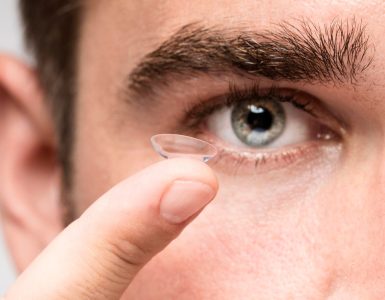Pregnancy is an exciting time and it is understood during this time that resultant hormonal changes to your body can be diverse and significant. It is normal to expect things such as morning sickness, food cravings, back pain, mood swings and, of course, the expanding belly. What many women don’t expect, however, is that there can be changes to your vision during this time. These vision changes are usually mild and will clear up after delivery. However, it is important for you to know which changes are normal, and which could signify something that will require medical attention.
What are the normal changes I can expect?
- Blurry vision. Water retention is a common side effect of pregnancy, such as swollen fingers, ankles and feet. Fluid retention can also affect your eyes by increasing the pressure in your eyeball. This results in the thickness and shape of your cornea changing slightly causing changes in the way your eyes refract light resulting in minor changes to your vision. If you already wear glasses or contact lenses, you may notice slight changes to your prescription. As these changes rectify themselves post-partum, it is not usually necessary for you to change your glasses at this time.
- Dry eyes. You may find your eyes are constantly feeling dry. Hormonal changes can change the amount of lubrication from tears in your eye, causing your eyes to feel gritty, itchy, burning and red. Sometimes they can become excessively watery. Over-the-counter artificial tears eye drops may help to alleviate these symptoms.
- Uncomfortable contact lenses. With the hormonal effects on your eyes changing the shape of your cornea and the production of tears to lubricate your eyes, your contact lenses may become uncomfortable to wear. Changes to the cornea will change the way your lenses fit. Combine that with your eyes drying out and you can understand the discomfort you may be experiencing. You may need to change to your glasses until your baby is born.
- Puffy eyes. Just as many other parts of your body swell from water retention during this time, you may find your eyelids do too. Ensure you drink plenty of water during this time and reduce your intake of salt and caffeine.
What changes do I need to be concerned about?
There are some vision symptoms experienced during pregnancy that need to be taken seriously as they can be caused by a medical condition that needs to receive attention immediately.
- Extremely high blood pressure / preeclampsia. This is a serious condition that can affect around 5% of pregnancies and can cause some noticeable vision changes. Blood pressure can soar very quickly and has the potential to endanger the health of both the mother and baby. Vision symptoms experienced include blurry vision, light sensitivity, auras, dark spots or flashing lights, sudden inability to focus your eyes and even temporary loss of vision. It’s important not to ignore these warning signs and to get immediate medical attention.
- Diabetes. If you suffer from diabetes prior to pregnancy, it is important that your condition is monitored closely during your pregnancy. As diabetes can cause damage to the blood vessels, through bleeding or fluid leakage (known as diabetic retinopathy), pregnancy may make you more susceptible to its development or for the condition to worsen. Symptoms that you need to be aware of include blurry vision, floaters and dark spots, fluctuating vision, dark or empty areas in your vision and impaired colour vision. It is very important that you closely monitor your blood sugar levels and that you have regular eye examinations, particularly if your blood sugar levels are not stable. Gestational diabetes is a condition that can cause blurry vision that can develop during pregnancy and then disappears after birth.
Pregnancy is a wonderful time when you notice rapid changes in your body. It is important that you nourish your entire body at this time by maintaining a healthy diet full of fresh fruits, leafy greens, nuts, fish high in omega 3 and lean meats and by keeping well-hydrated and ensuring you get plenty of rest.
Minor changes to your eyes are a normal part of pregnancy and are usually temporary. However, if you are having concerns about any pain, vision loss or discomfort, talk to your optometrist or doctor. It may be nothing serious, but it is better to be safe than sorry and it will help to ease your mind.




